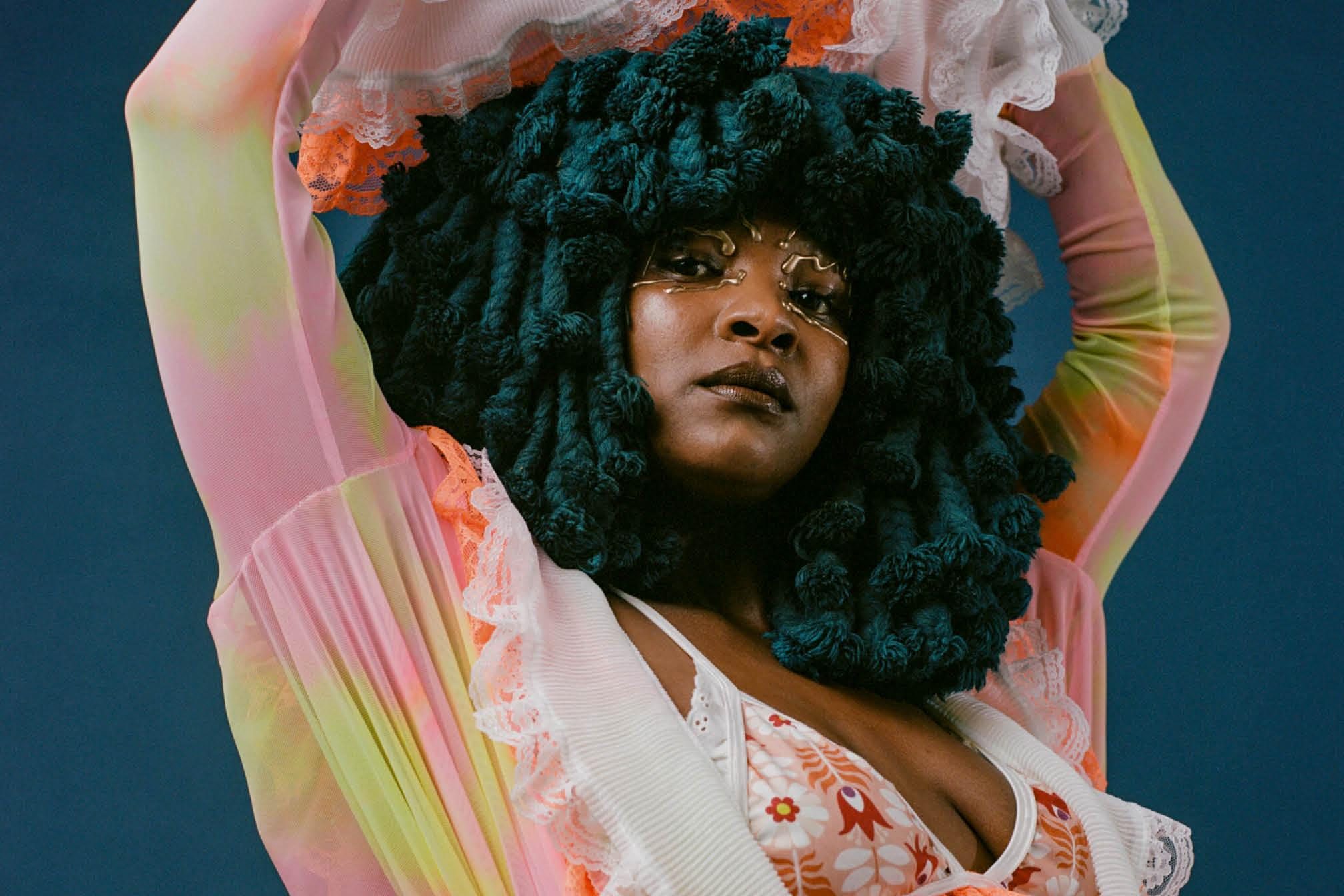 Features
Features
Sound of liberation: How Moonchild Sanelly crystalised her future ghetto funk vision
Moonchild Sanelly's powerful new album 'Phases' spreads a message of all-inclusive, sex-positive feminism. She speaks to Robert Kazandjian about writing hooks, being a global artist and unapologetic self-expression
“It hasn’t happened yet, but it could happen at any time…”
South African pop goddess Moonchild Sanelly sits across from me on Zoom, wrapped in a plush robe that matches her striking blue yarn braids, her eyes hidden behind cat-eye shades, hands clasped in playful prayer. A looming power outage in The Rainbow Nation threatens to cut our conversation short.
… so it’s a matter of us just doing it and hoping for the best.”
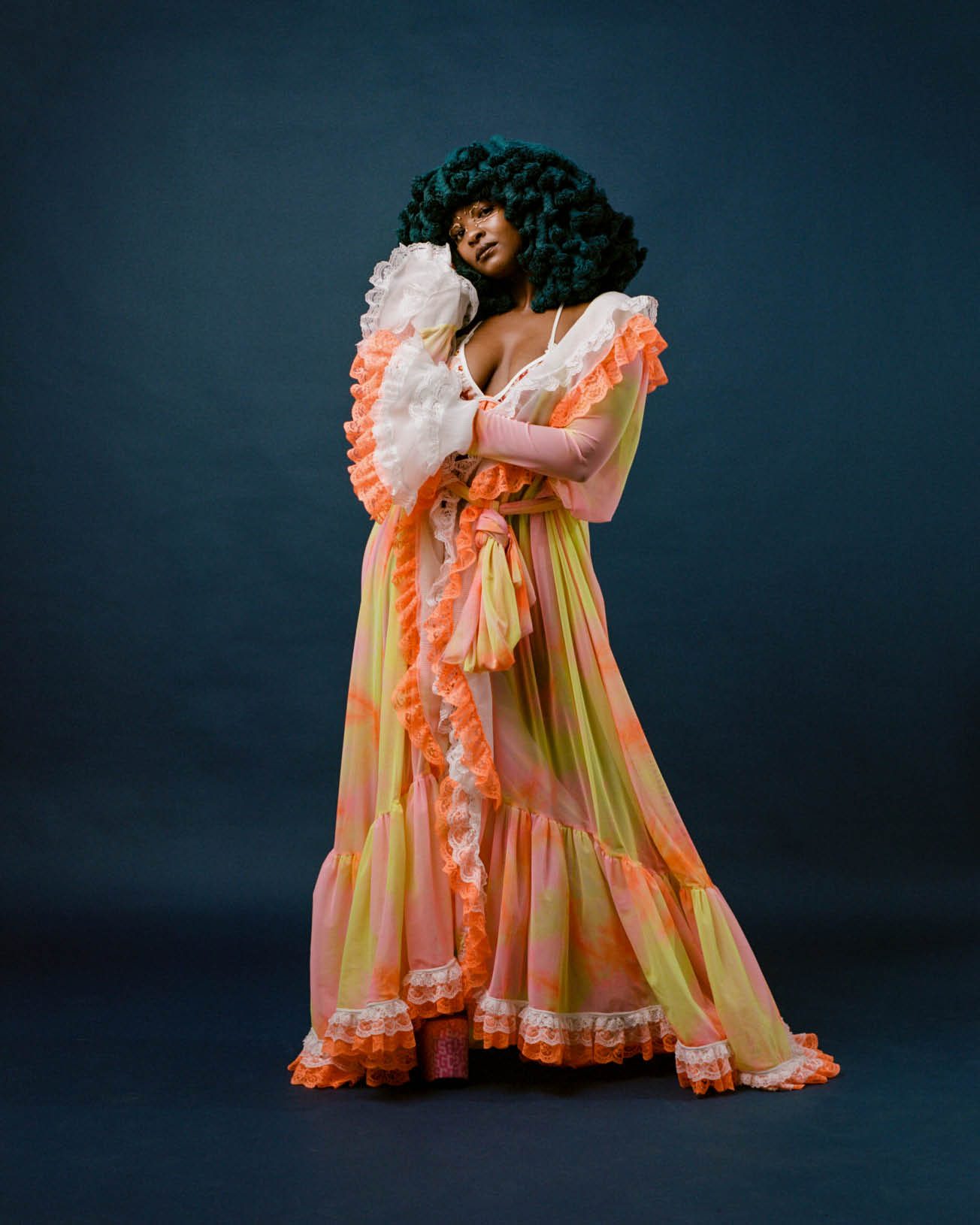
The groundbreaking artist is basking in the afterglow of a European mini tour. She supported Gorillaz in Vienne, Southeastern France, performed in Berlin and London, and blessed both Primavera and Glastonbury with her distinctive ‘future-ghetto-funk’ sound — a fluid, constantly evolving amalgamation of homegrown dance genres like Kwaito, gqom and more recently amapiano, with elements of hip hop, jazz, pop, R&B and trap.
Read this next: 17 women shaping African dance and electronic music
Sanelly’s first experience of Worthy Farm and its endless possibilities has left a lasting impression on her. “Glastonbury was ridiculous, it was siiiick,” she says, elongating the word to emphasise her point. “It was fucked up and insane and I loved it! We’re going back next year. The crowd there, the people are just present, they’re living.”

While there, she finally connected in real life with grime legend Ghetts, performing 2020’s ‘Mozambique’ live for the very first time. Sanelly’s scorching feature on the track, laced with rolled Rs and Xhosa bars, grabbed the attention of UK listeners. A year earlier, she collaborated with Beyoncé on ‘MY POWER’ as part of ‘The Lion King: The Gift’ soundtrack. Sanelly describes herself as “a global artist, who happens to be from South Africa” and has always believed that she’d reach beyond the boundaries of home.
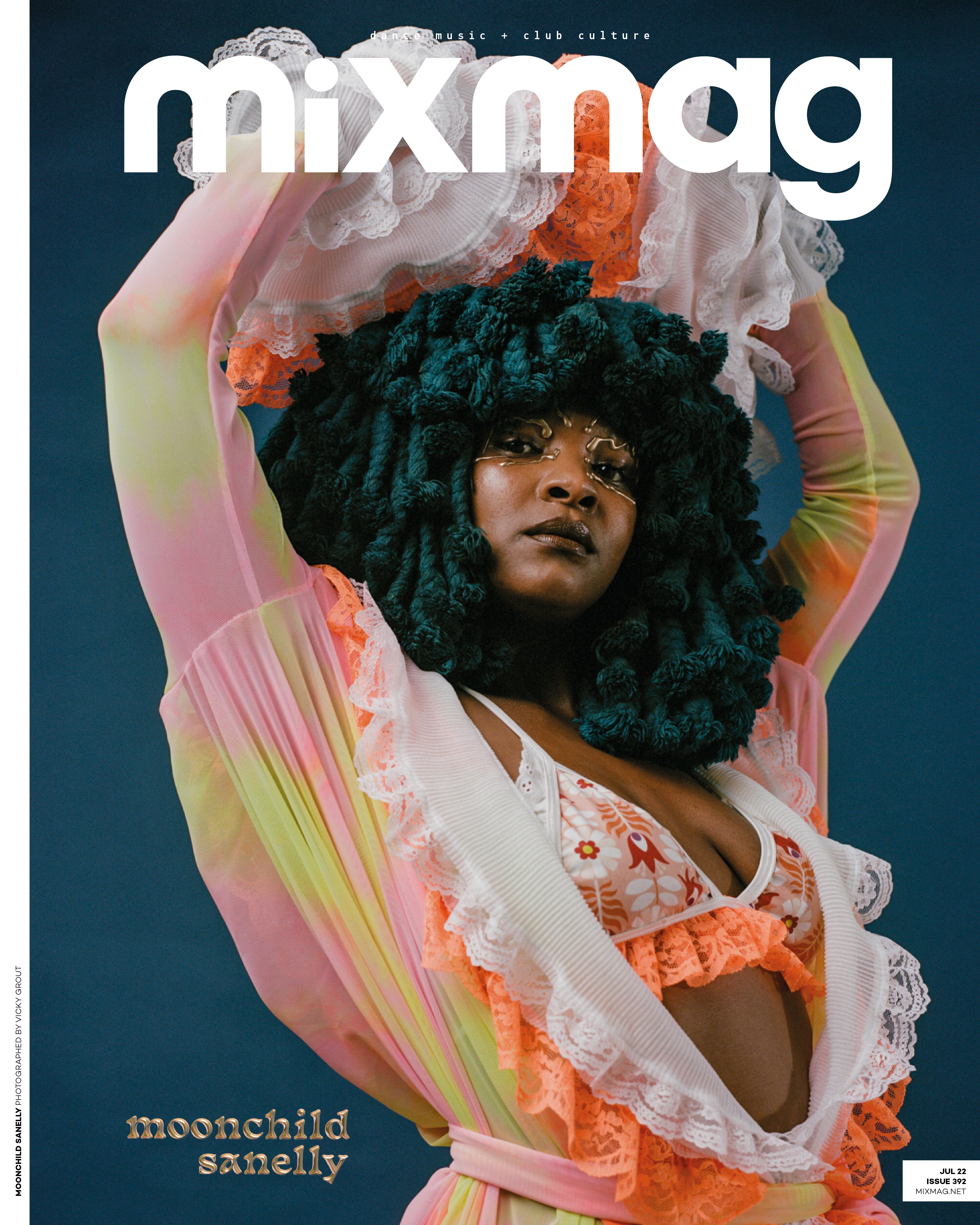
“I always said I’ll be on billboards, that I’ll go to places like London and New York and Japan, and then I’ll come home and have a drink in a pub without any problems or paparazzi,” she explains. “I always saw myself as a person outside of my country. I started travelling by just searching on the internet. Then I started going overseas and performing, experiencing the world. My first album ['Rabulapha!', 2015] was received more internationally than it was in my country. And this was all written down when I was moving from Durban to Johannesburg. This was the plan ”
Read this next: The Cover Mix: Moonchild Sanelly
Sanelly’s debut introduced her approach of making outward-looking music that is rooted in local sounds, where skeletal gqom beats and futuristic synths coexist, held together by playful, poppy vocals. On long-awaited sophomore album 'Phases', released in June, the sonic palette is richer and deeper. ‘Demon’ is a slice of ice-cold Kwaito. Sanelly and Trillary Banks flex on bouncy trap cut ‘Cute’. ‘Bird So Bad’ is the project’s most vulnerable moment as she floats quietly above a gentle production. It feels like ‘future ghetto funk’ is now crystalised and refined.
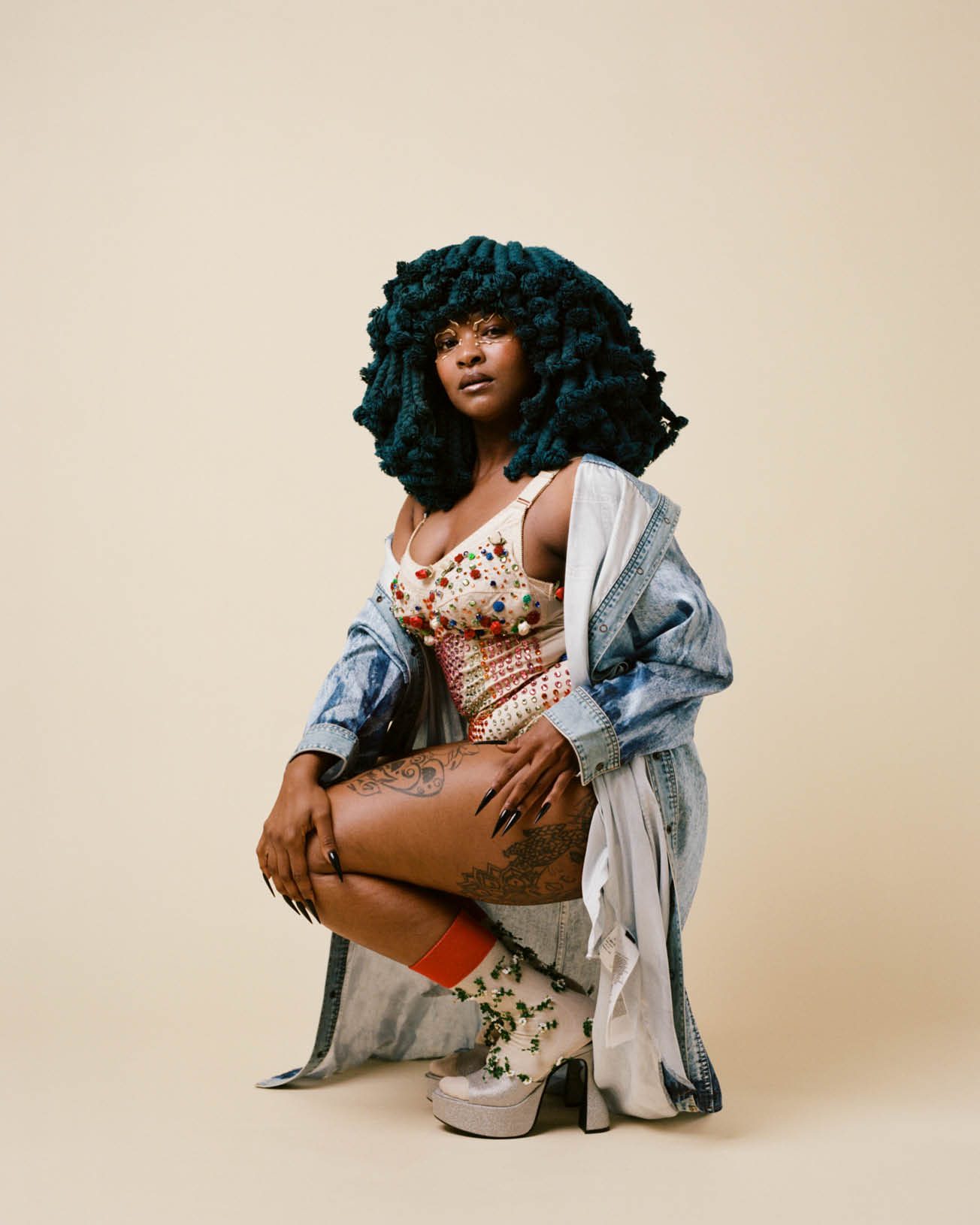
“It’s evolved in a way now, where I’m even more exposed to the world. I’ve got different ways of approaching songs,” she says. “Something I didn’t do before, which I do now, especially with commercial success is knowing how the writing patterns differ and how to sanitise an emotion. I’m a storyteller, but I love hooks. Instead of telling long stories, the one consistent thing is hooks now. I’m not in the alt, underground space anymore. My audience is growing. And my music is keeping its authenticity, but I’ve learnt techniques to make it bigger so it reaches more people. So every time I go into a studio to write a new song, I try to imagine an audience hearing it for the first time but also being able to participate in it.”
Across 19 tracks, 'Phases' moves through the stages of a failing relationship in its first half, with Sanelly moving towards the dancefloor and freedom in the album’s second half as the pace quickens and the space brightens. ‘Covivi’, ‘Soyenza’ and ‘Yebo Teacher’, a hat-trick of irresistible amapiano cuts, reflect that sense of freedom.
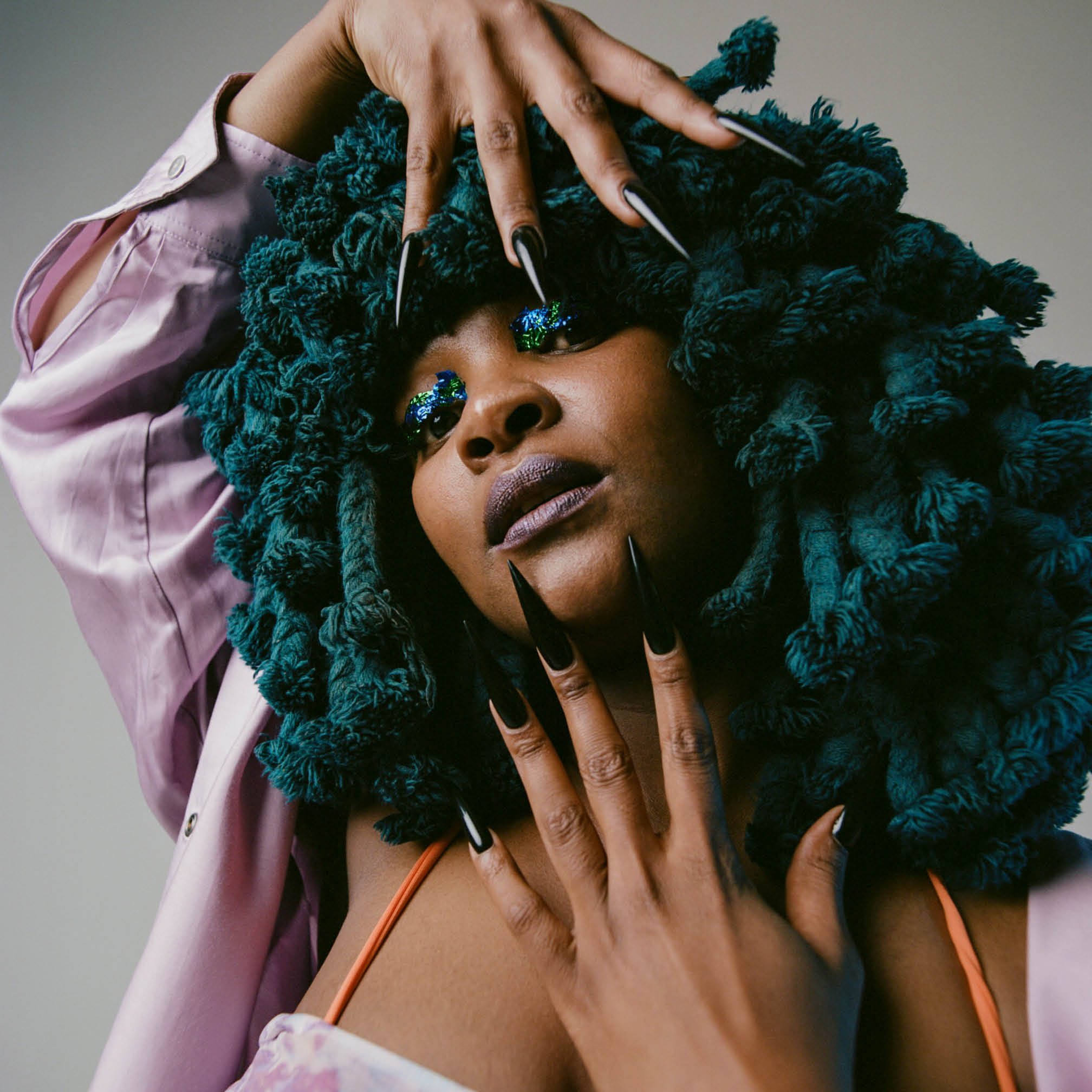
The album's emotional depth is a product of lockdown, giving Sanelly the time to process her many emotions. “I feel like lockdown afforded me the opportunity to actually sit with my feelings. When the world is open, stuff is happening so quickly. You're in the studio, you're writing, you're grabbing opportunities, quick and fast. There's no time to sit and feel. I could do that for this album. So for me, 'Phases' is like the different phases of the moon. My soft sides, my sad sides, but it always ends with positivity. And the main theme will always be liberation, and owning who you are unapologetically.”

Liberation has always been at the forefront of Sanelly’s music. Her vision is one of all-inclusive, sex-positive feminism. 'Phases' champions all women, from those in relationships because it’s convenient, to “the side-chick who don’t want no commitments”, to strippers, dancers and sex-workers. She explains that she wants the album to shine a light on all representations of womanhood, but especially those which are not deemed acceptable by mainstream society. “Because as women, we go through so many different phases and it’s fine,” she says.
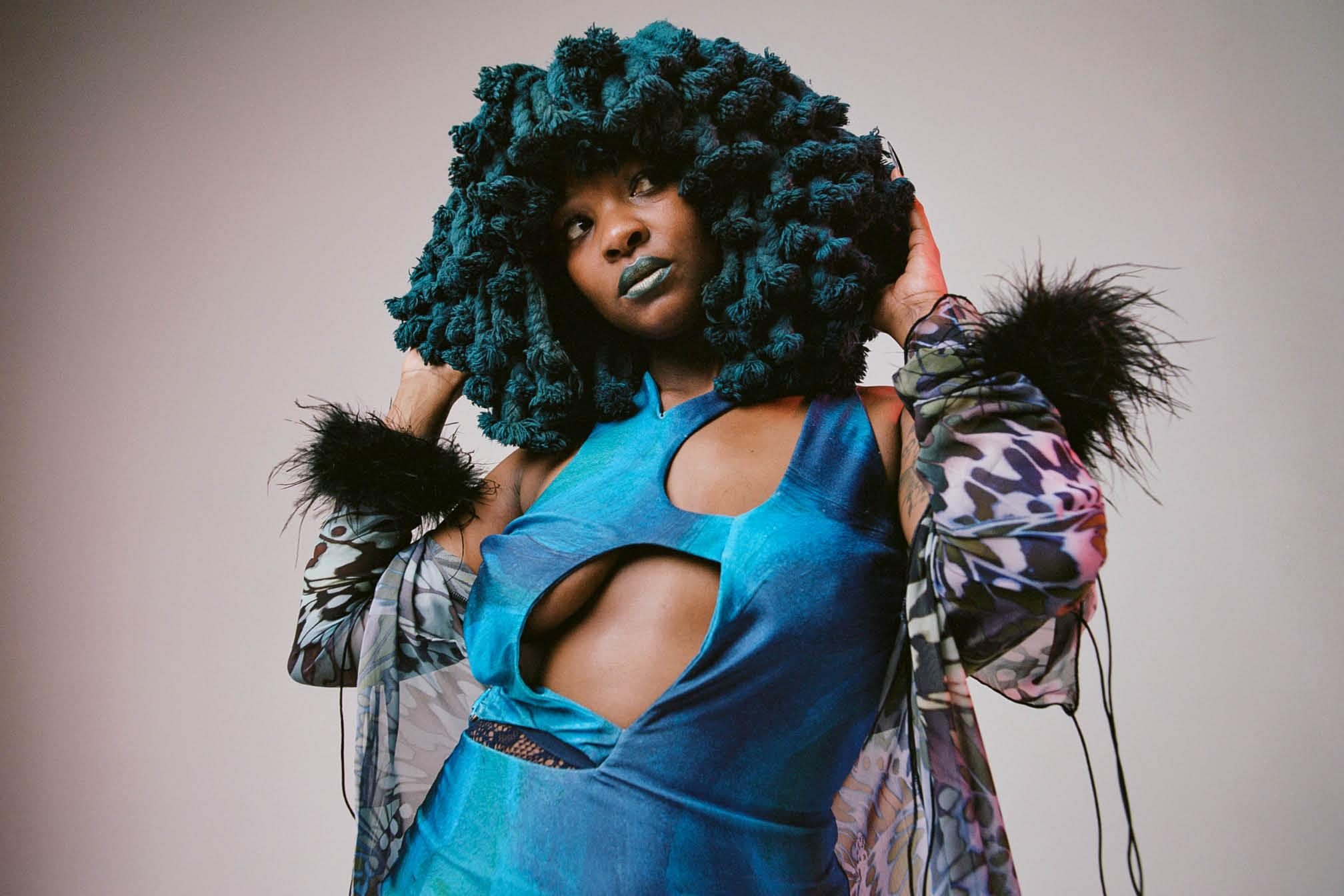
As a society, we are currently experiencing what feels like a regression on so many different levels, and women’s rights are being eroded, from the overturning of Roe v. Wade in the US to the relentless targeting of trans people. Does this hateful climate add a level of pressure to Sanelly’s work? Does it make it more urgent? She doesn’t think so.
Read this next: We need to end sexism, misogyny and violence in dance music
“Not necessarily, because I never did this under pressure. It’s something that I do naturally and it’s worked at its own pace. The ‘outside’ doesn’t pressure me. This all comes from me. It translates through my speech, through my fashion, through my creativity in general. It’s not something I have to actively think about when I write my music. It’s simply who I am.”

“I guess that’s why I’ve always been able to just be myself,” she continues. “I’ve been through so many rejections because of it, and I’ve just stayed true to myself, because there was no-one else I could ever be! I’m true to it and it reaches the people who need it. The more the world becomes open-minded, the more people will hear it. But there’s no pressure for me.”
Sanelly’s vision is evident in the team she keeps around her, from tour managers to roadies to stylists. She exclusively employs queer people and women, the people who she describes as “the black sheep” of society. “These are the people who’ve had to fight to fit in the world, but they make sense in my world. And so we just make magic together,” she says.
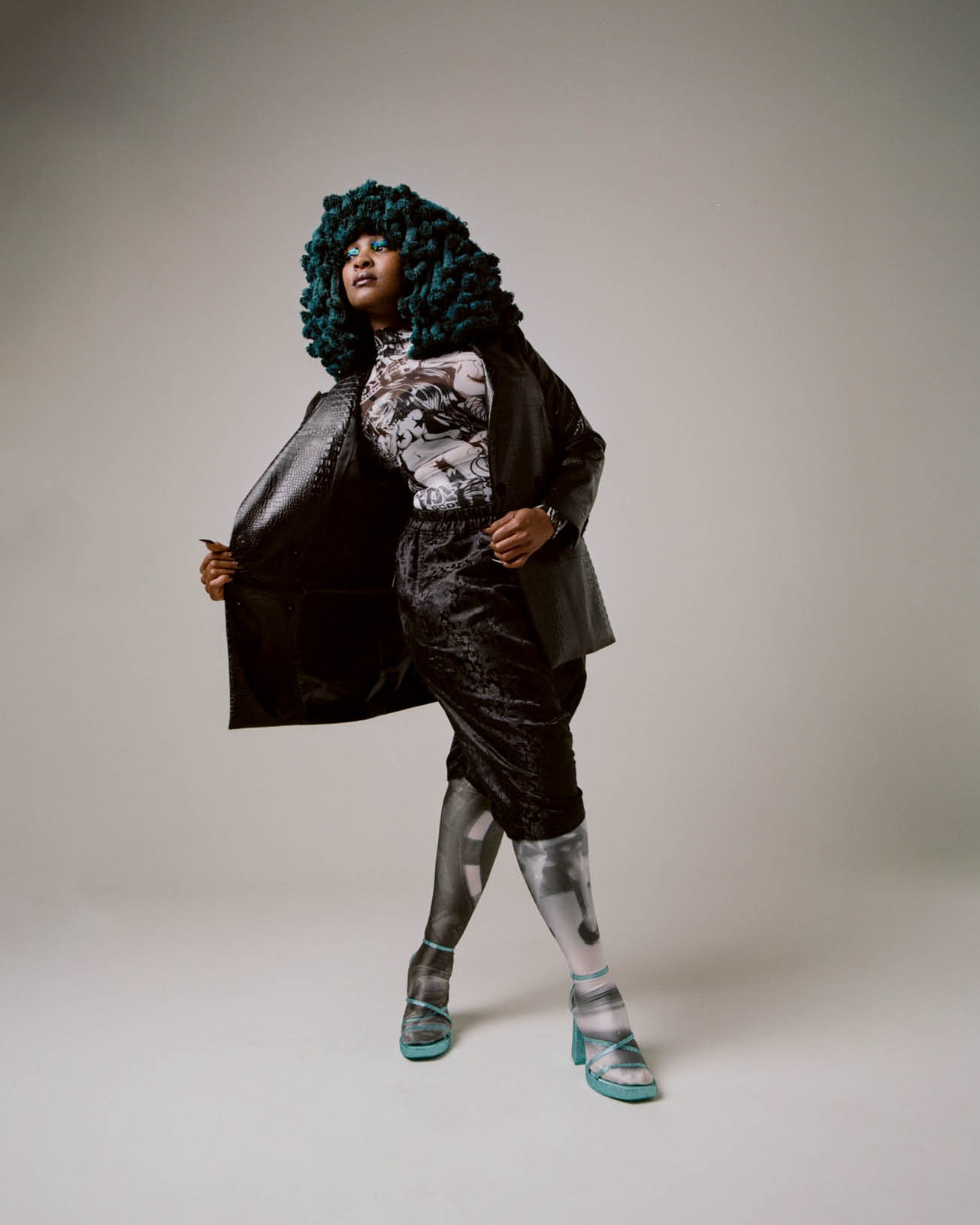
Sanelly cites her late mother, who passed away when she was a teenager, as the lifeforce behind her fearless, fierce approach when it comes to celebrating and owning difference, from simple things like feeling comfortable in her own body to owning fashion choices that others might deem weird.
“I used to get scolded if she saw me walking behind a group of friends. She never wanted me to follow, but to learn or to lead,” she explains. “She celebrated being different, and owning difference is something she instilled in me. Being creative and expressive is something she instilled, from doing ballroom and Latin dancing when I was a child, to twerking in traditional dance classes, to modelling. Because of her, I was already thinking bigger than home, because I was exposed to other things. So it’s always been normal to just do these things and be myself. It’s the world that asks where we find the courage to be ourselves. But surely it’s the most normal thing, isn’t it?”
And if her mother is looking down on her now, how would she feel about her journey so far? Would she be proud? Sanelly is in no doubt.
“Yes! She’d be twerking, to jazz music!”
Sanelly’s camera is off now, but I can hear a broad smile stretch across her face.
'Phases' is out now via Transgressive Records, get it here
Robert Kazandjian is a freelance writer, follow him on Twitter


